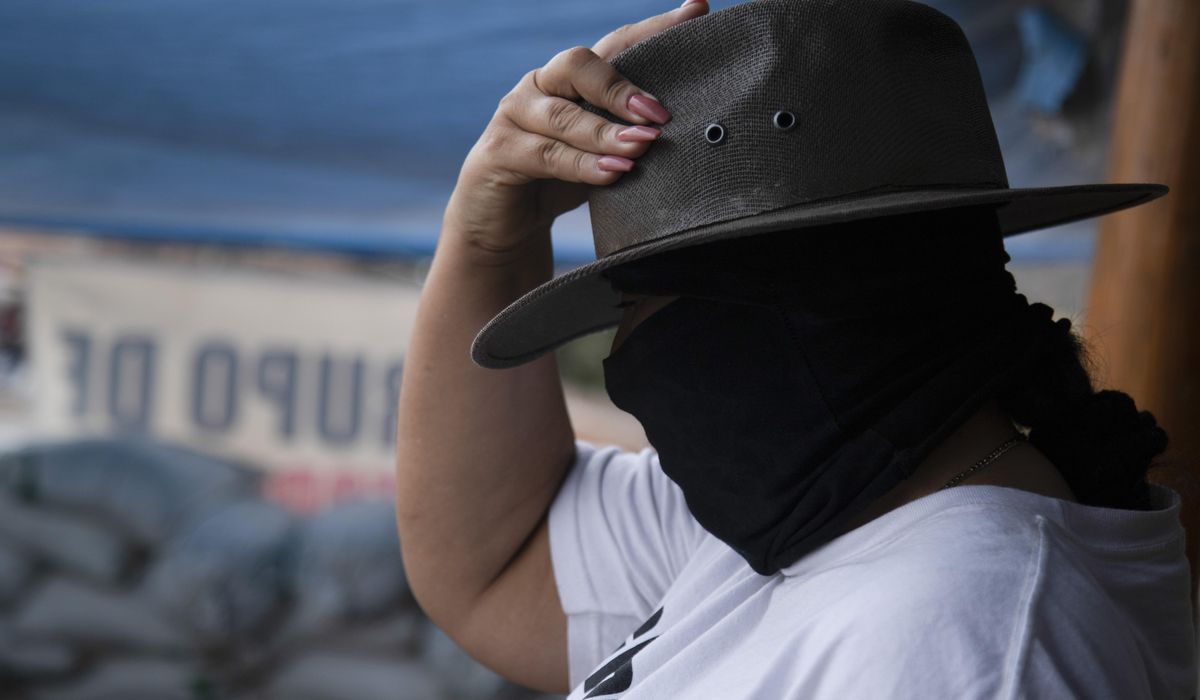


A Houston diner gunning down an armed robber.
A D.C. homeowner fatally shooting a young teen accused of breaking into cars.
A St. Louis woman tracking down and killing her carjacker, but also mortally wounding an innocent bystander in the process.
A rash of recent high-profile vigilante incidents, according to crime experts and social scientists, could be a sign that some Americans are losing faith in the justice system and in the ability of police to serve and protect.
“If police can’t control crime and public safety, my fear is it will continue to increase,” Peter Moskos, a professor at John Jay College of Criminal Justice and a former Baltimore police officer, told The Washington Times.
Mr. Moskos said it’s too soon to talk about vigilantism as a full-blown national trend. But he does think there needs to be a political consensus that this type of behavior is a net-negative — something he’s not sure is an accepted opinion among the fringe left and fringe right.
The aforementioned incidents are all being either investigated by law enforcement, or charges have been already brought against the suspects.
The Houston diner is communicating with police through an attorney after he was seen in Jan. 5 surveillance video firing multiple shots at the armed robber.
What drew the ire of activists in that incident — captured on surveillance cameras inside the eatery — were the additional rounds the bystander pumped into the body after the armed robber fell to the ground and seemed to no longer present a threat.
Texas law grants significant leeway for people to use deadly force when threatened with a violent crime.
That’s not the case in the District, though, where D.C. government worker Jason Lewis was charged Tuesday with second-degree murder in the Jan. 7 shooting death of 13-year-old Karon Blake.
According to the affidavit, the 41-year-old Mr. Lewis fired his registered firearm at a vehicle while investigating car break-ins on his street around 4 a.m. on the day of the incident.
Police said a single shot fired by Mr. Lewis at a stolen “getaway” car on the street led a fleeing Karon to change direction and run toward Mr. Lewis, who then fired multiple shots at the teen.
A judge ordered Mr. Lewis, who pleaded not guilty to the charges during his arraignment hearing Tuesday, to be held without bond.
At a press conference held a day later, the teen’s mom, Londen Blake, said she was surprised officials took more than three weeks to decide to file charges in the case, and told reporters she wants Mr. Lewis punished to the fullest extent of the law.
Ms. Blake also addressed the details of the affidavit that said Karon was with a group of teens who were breaking into cars on the block before the shooting occurred.
“He was a good kid. But like I said, kids do things that parents aren’t always aware of,” Ms. Blake said. “Kids get with other kids, and they make silly decisions. That’s just what it is.”
Demesha Coleman was arrested by St. Louis police last month after authorities said she shot and killed carjacker Darious Jackson as well as innocent bystander Joseph Farrar while trying to retake her car, according to KSDK, the city’s local NBC affiliate. She also critically injured another bystander during the shooting.
Ms. Coleman, who had no prior criminal history, has since been charged with two counts of first-degree murder, one count of assault and three counts of armed criminal action.
Academics have long argued that failing institutions, or even the public perception that government systems are failing, provide fertile ground for vigilantism, even when problems are unrelated to criminal justice.
Regina Bateson, a professor of political science at the University of Ottawa, suggested in 2020 that the propensity for lynching in Port-au-Prince, Haiti, was downstream from the country’s flimsy formal institutions.
“When citizens resort to self-help in one domain (ex: trash collection), they also appear to express greater desires for self-help in other domains (ex: security),” Ms. Bateson wrote.
A Gallup poll from July found that Americans’ average confidence in the 16 institutions they were polled on had reached a new low of 27%.
Law enforcement hasn’t been immune from this decline. While the police were ranked third-highest on the list, they still dropped from 51% confidence in 2021 to 45% confidence in 2022. Meanwhile, the criminal justice system — which was ranked fourth-lowest — went from 20% confidence in 2021 to 14% confidence in 2022.
That matters because perceptions matter.
Fan Xuan Chen, a psychology researcher at the University of Illinois Urbana-Champaign who studies the vigilante identity, told The Times that his team’s research shows that people who feel the justice system isn’t working — what Mr. Chen calls a “justice failure” — are more inclined to adopt vigilante attitudes.
“The justice failure doesn’t need to be an absolute justice failure. It is about perception,” Mr. Chen said. “If you think the justice system is insufficient, it’s enough to trigger and exaggerate the effect of vigilante identity.”
People who behave extrajudicially, according to Mr. Chen’s research, are defined by wanting to be recognized for their deeds, but also don’t care if they harm innocent people in order to deter future bad actors.
“I don’t trust them,” Mr. Moskos from John Jay College told The Times. “Collectively, that’s not the way a society functions.”
• Matt Delaney can be reached at mdelaney@washingtontimes.com.
